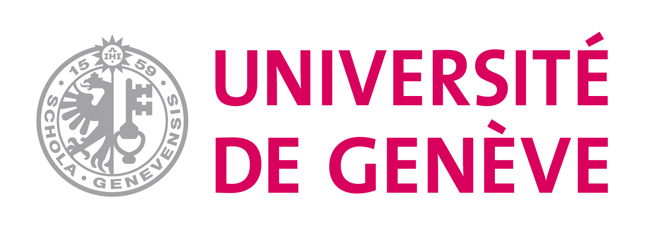University of Geneva

Founded in 1559 by Jean Calvin, the University of Geneva is dedicated to thinking, teaching, dialogue and research. With 16,000 students of more than 140 different nationalities, it is Switzerland’s second-largest university. It offers more than 280 types of degrees and more than 250 Continuing Education programmes covering an extremely wide variety of fields: exact sciences, medicine and humanities. Its domains of excellence in research include life sciences (molecular biology, bio-informatics), physics of elementary particles and astrophysics. UNIGE is also host and co-host to six National Centres of Competence in Research: Frontiers in Genetics, Materials with Novel Electronic Properties (MaNEP), Chemical Biology, Affective Sciences, Synaptic Bases of Mental Diseases and LIVES-Overcoming vulnerabilities in a life course perspective. Just like the city of Geneva itself, the university enjoys a strong international reputation, both for the quality of its research and the excellence of its education.
In the EURYKA project, research is conducted at the Institute of Citizenship Studies (InCite). InCite is a research centre within the Geneva School of Social Science at the University of Geneva. The institute aims to promote research as well as other initiatives bearing on the issue of citizenship in all different aspects: formal, participatory, identitarian, etc. It replaced the Institute of Social and Political Research (RESOP) from January 1, 2014. The latter has been involved in a number of EU-funded projects (UNEMPOL, DEMOS, LOCALMULTIDEM, YOUNEX, EURISLAM). InCite is currently coordinating the LIVEWHAT project and participating in the POWER2YOUTH project, both EU-funded.

Marco Gabriele Giugni is the Project Coordinator of the EURYKA project. He is Professor in the Department of Political Science and International Relations and Director of the Institute of Citizenship Studies (InCite). His research interests include social movements and collective action, immigration and ethnic relations as well as unemployment and social exclusion. He has participated and coordinated numerous research projects, funded by the Swiss national funding agency and the European Commission, including the Swiss case of the Caught in the Act of Protest research project and the FP7 project LIVEWHAT. Publications include 9 books, 10 edited collections and more than 100 journal articles and book chapters. In addition, he has edited or co-edited a number of special issues for scholarly journals such as the Swiss Journal of Sociology (editor, 2004), Revue Suisse de Travail Social (editor, 2011), Ethnicities (co-editor, 2013) and International Journal of Social Welfare (co-editor, 2013). He is also European Editor of Mobilization (2008), a leading international journal focussing on social movements and protest and as such has a wealth of practical experience in publishing and editing. For up-to-date information, please visit Marco's staff page.

Valentina Holecz is a doctoral student and collaborator of research at the Institute of Citizenship Studies (InCite).
She is currently working on a project financed by the European Commission that aims to study the relations between inequalities and young people's ways of doing politics as well as to advance scenarios for future democratic models and political systems in Europe that are more inclusive for young people.
She has collaborated on the SNFS research project ‘Offensive Discourse in Political Arenas’ in 2014.
Valentina obtained a bachelor and a master degree in political science at the University of Geneva.

Maria M. Mexi is currently affiliated with the Institute of Citizenship Studies (InCite) of the University of Geneva. She has completed postdoc research at the University of Geneva and she holds a Doctorate (DPhil) in Politics and International Relations and an MPhil in Political Theory from the University of Oxford, an MSc in European Social Policy with Distinction from the London School of Economics, and a BA in History with High Distinction from the American College of Greece. Dr Mexi has conducted research in the areas of European social policy, youth mobilization and solidarity forms in times of crisis, and she has developed and managed numerous research and technical assistance (including, capacity building) projects in collaboration with universities, international organizations, consulting agencies and NGOs. She also works as a consultant for international organizations in the area of social policy, while her current research interests fall within the areas of youth political participation, migration, social dialogue and the future of work. She is currently the Co-Coordinator of the SNIS-funded project “Gig Economy and its Implications for Social Dialogue and Workers' Protection” run by the University of Geneva in collaboration with the ILO and a network of European universities and research institutes from Germany, Greece, and the UK.

